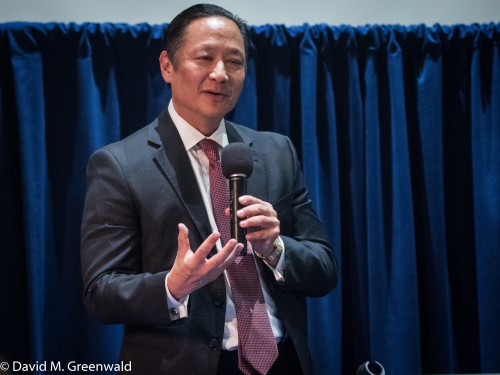

SF Public Defender, immigrant rights groups escalate legal pressure on Trump admin as anger over abrupt transfers mounts.
(From Press Release) – Local immigration attorneys filed a flurry of “Habeas Corpus” petitions in federal district court today, seeking the release of 10 people arbitrarily transferred last week from the West County Detention Facility in Richmond to out-of-state immigration jails. The transfers have sparked protest and condemnation from community and civil rights groups.
Filed by the San Francisco Public Defender’s Office, Pangea Legal Services, and Community Legal Services in East Palo Alto, the “habeas” petitions argue that Immigration and Customs Enforcement’s (ICE) sudden transfer of the community members to immigration jails in Washington state and Colorado violated their due process rights and denied them access to legal representation.
“ICE’s transfers of community members to faraway, for-profit immigration jails deprive our clients and their families of legal representation and the support of their families and community. It is imperative that their cases be heard in the San Francisco court so we can continue to protect their rights and provide legal representation,” said San Francisco Public Defender Jeff Adachi.
As the legal filings explain, the transfers interrupted immigration hearings which had already been scheduled in San Francisco, needlessly prolonging the community members’ detention and waste court resources. The community members are now separated by hundreds of miles from family members, attorneys, and vital witnesses for their immigration cases who may be unable to travel – significantly jeopardizing due process.
Additionally, ICE moved these community members to immigration jails where nine in ten people do not have legal representation, which is essential for navigating an immigration system frequently described as maze-like. Experts have noted that there is no other area of U.S. law where detained people must advocate for their freedom against trained government lawyers without being guaranteed assistance from an attorney.
“Habeas Corpus” is a time-honored legal procedure that prevents the government from detaining people indefinitely without cause.
Get Tickets To Vanguard’s Immigration Rights Event
I read some stuff about . According to The San Diego Tribune , since mid-April, when U.S. Attorney General Jeff Sessions announced the new policy, public defenders in San Diego have filed 138 habeas corpus petitions, a civil remedy that in Latin translates to “produce the body.”
The 2016 Rodriguez’ case is quite interesting .
Alejandro Rodriguez, a 39-year-old lawful permanent resident of the U.S. who was brought to the country when he was an infant. He was working as a dental assistant when he was picked up and detained for deportation based on a 1998 conviction for joyriding — not a deportable offense — and a later conviction for drug possession, which is a deportable offense, at the discretion of the immigration court. Rodriguez was detained for three years and ultimately prevailed in keeping his status as a lawful permanent resident. THANK YOU VERY MUCH AMERICA FOR 3 YEARS OF HOSPITALITYAND COMPASSION . I am wondering how much it cost American taxpayers to keep this guy for three years in detention center or prison . Unbelievable
The Supreme Court ruled in 2001 that detention, imprisonment, and other forms of physical restraint lie “at the heart of liberty” protected by the Constitution, but two years later, it upheld detention for brief periods without requiring individualized custody hearings.
The Obama administration countered that these arguments are all beside the point, because, in the government’s view, the executive and legislative branches traditionally have the power to control immigration matters free from any judicial oversight. In short, the government argues that if Congress or the president wants to change the law or immigration regulations, either can do so. But the courts have no business meddling in such matters.
THE GUIDE FOR IMMIGRANTS
https://www.advancingjustice-alc.org/wp-content/uploads/2012/11/Pro-Se-Zadvydas-updated-Feb-2016.pdf
In a 2001 case called Zadvydas v. Davis, the U.S. Supreme Court ruled that ICE cannot hold immigrants indefinitely after they are ordered removed. In general, ICE is allowed to hold you for six months after your removal order becomes final. After six months, if you can show that it is unlikely that you will be removed in the reasonably foreseeable future, you should be released. Some reasons why your removal is unlikely may include, for example: your home country does not have a repatriation agreement with the United States, your home country generally does not accept the deportation of people with certain criminal convictions, your home country does not consider you a citizen, or you are not a citizen of any country.